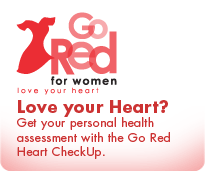Stress
Birth Control Pills
Alcohol
Illegal Drugs
Stress
We all feel stress, but we feel it in different amounts and react in different ways. Too much stress over a long time, and unhealthy responses to it, may create health problems in some people. For example, women under stress may overeat, start smoking or smoke more than they otherwise would. Find healthy ways to handle stress. Stop smoking, stay at a healthy weight, and eat foods low in saturated fat, trans-fat, cholesterol and sodium
Birth Control Pills
Today's low-dose oral contraceptives carry a much lower risk of heart disease and stroke than the early Pill did. However, women on the Pill who smoke or have high blood pressure are at higher risk for cardiovascular disease. Taking oral contraceptives and smoking greatly increases the risk of heart attack.
If you're a woman over age 35 who hasn't reached menopause, and you want to use birth control, talk with your healthcare provider about:
- Your personal and family medical history.
- Your risk factors for heart disease, stroke and cancer.
- The safety and effectiveness of the various birth control methods.
Alcohol
Drinking too much alcohol raises blood pressure, can cause heart failure and can lead to stroke. It adds calories, contributes to obesity, and makes it harder to lose weight.
If you don't drink, don't start. And if you do drink, talk to your healthcare provider about drinking in moderation.
For women, a moderate amount of alcohol is an average of one drink per day. One drink is defined as 1-1/2 fluid ounces (fl oz) of 80-proof spirits (such as bourbon, scotch, vodka, gin, etc.), 1 fl oz of 100-proof spirits, 4 fl oz of wine, or 12 fl oz of beer.
If you're pregnant, don't drink alcohol in any form! It can cause your unborn child serious problems, including birth defects.
Illegal Drugs
Intravenous drug abuse carries a high risk of endocarditis (infection of the heart's lining or valves) and stroke. Cocaine use has been linked to heart attacks and strokes. Illegal drugs can be fatal even in first-time users.
Risk Factors You Can Control Or Treat
Risk Factors You Can't Control
Stroke-Specific Risk Factors
Warning Signs




